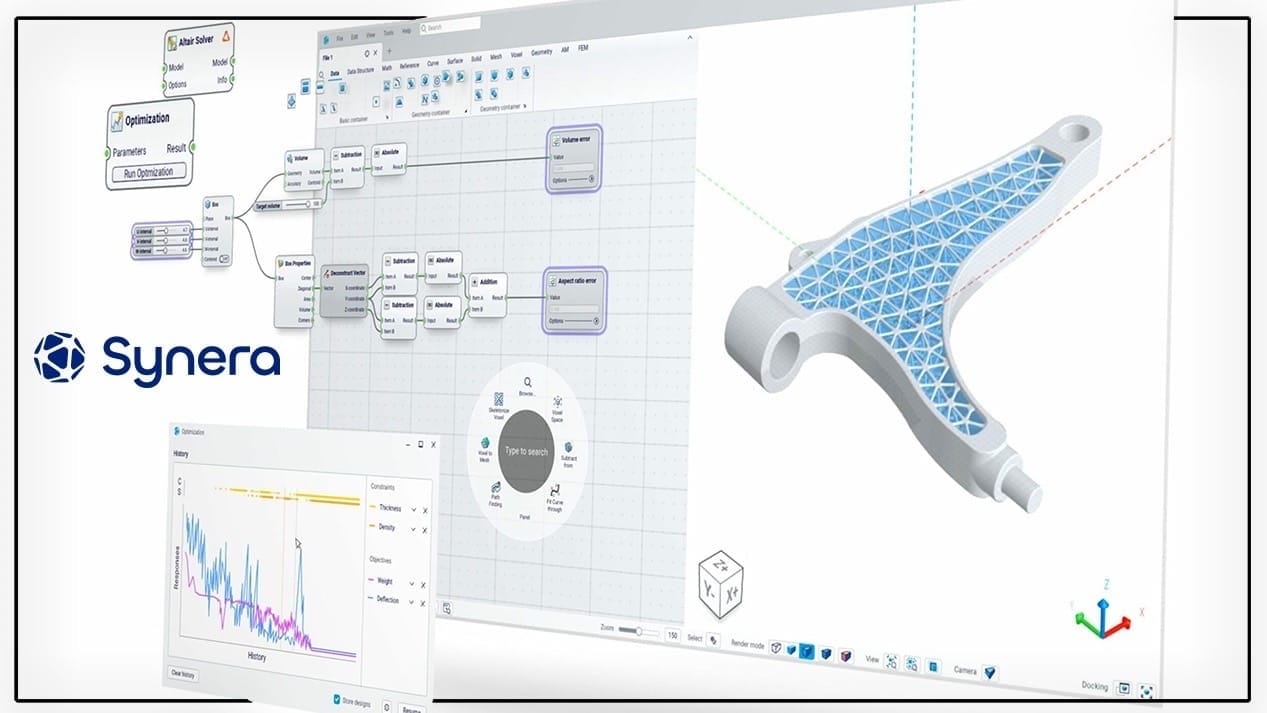Like many other fields, mechanical engineering is undergoing significant changes driven by technological advances. The traditional image of an engineer meticulously designing and calculating every detail is reshaped by new tools and methodologies emphasising efficiency and collaboration.
In the fourth episode of the Connected Engineering Podcast, Mike Grau shared his experiences and insights on this evolution, mainly focusing on the role of low-code solutions and the transition from specialist to generalist roles in engineering.
From Specialists to Decision Makers
Recently, there has been a fundamental shift in the role of engineers. Traditionally, engineers were seen as specialists who handled specific tasks such as designing models or performing complex calculations. However, the industry is moving towards a model where engineers are more generalists, acting as decision-makers rather than mere executors. This change is driven by the need for engineers to make informed decisions based on insights derived from comprehensive data and communication rather than solely on technical calculations.
The Fragmented Landscape of Hardware Development
One of the critical challenges in modern mechanical engineering is the fragmented nature of hardware development workflows. Unlike software development, which has rapidly evolved through methodologies like Agile and DevOps, hardware development often remains siloed, with different teams working in isolation and communicating through outdated methods like emails and disparate file formats. This fragmentation leads to inefficiencies and delays in bringing products to market.
As Mike noted, the hardware industry could learn much from software development. While hardware development inherently involves physical components and distributed manufacturing, adopting integrated, iterative processes akin to software development can significantly improve efficiency.
Embracing Low-Code Solutions
Enter low-code platforms that can transform engineering workflows. Low-code platforms allow engineers to automate and document processes without needing extensive programming skills. This democratisation of knowledge through low-code solutions like Synera can help centralise expertise within a company, making it accessible and reusable.
Engineers often hesitate to share their knowledge freely, fearing that they might lose their unique value within the company. However, the real value lies in the ability to document and share this knowledge, enabling others to build upon it and fostering a collaborative environment. This shift from hoarding knowledge to sharing it is crucial for the industry's growth.
Practical Applications and Benefits
There are practical examples of how low-code solutions have transformed traditional workflows. For instance, tasks like cable routing or fluid mechanics simulations, which previously required extensive manual input and specialized knowledge, can now be streamlined using low-code platforms. These platforms integrate various disciplines, allowing engineers to consider design, manufacturing, and cost implications simultaneously.
The iterative and organic nature of building workflows in low-code environments should also be highlighted in this context. Engineers can start with simple templates and gradually add complexity, tailoring solutions to their specific needs. This approach not only saves time but also empowers engineers to innovate without waiting for software developers to create custom tools.
Looking Ahead
The role of engineers will continue to evolve. Engineers will increasingly act as integrators of various knowledge domains, leveraging insights from IoT data, manufacturing constraints, and cost considerations to make informed decisions. The emphasis will be on understanding and applying holistic insights rather than mastering every technical detail.
To succeed in this evolving landscape, engineers need to develop strong communication and collaboration skills. Soft skills like listening, asking questions, and working across disciplines to gain a broader perspective are crucial for effective teamwork and project success.
Conclusion
The mechanical engineering field is at a transformative juncture, where traditional roles and workflows are being redefined by technological advancements. Low-code platforms like Synera are at the forefront of this change, enabling engineers to automate processes, share knowledge, and collaborate more effectively. As the industry moves towards a more integrated and decision-driven model, the ability to adapt and embrace new tools will be vital for engineers.
Those interested in exploring these innovations further can picture their ideal workflows and start experimenting with low-code solutions. The initial effort may be challenging, but the rewards in terms of efficiency and empowerment are substantial. By adopting these new tools and mindsets, engineers can significantly enhance their impact and drive the industry forward.
Connected engineering is the way forward - stay tuned for more insights into modern innovations!

